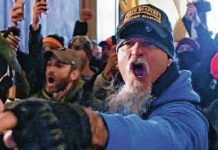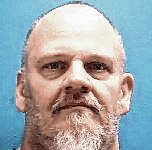BY RYAN TRARES
For The Republic
For Mike Pence, the road to vice president of the United States started on the airwaves of Indiana.
The Columbus native had just lost his second straight campaign for Congress in 1990, and was reeling. Determined to re-establish himself as a candidate, he started a talk show dedicated to local and national politics.
“The Mike Pence Show” was one of the few talk radio programs in the 1990s that focused specifically on politics, serving as a precursor to dozens of similar political programs now inhabiting the radio waves.
What started as a small program on a single station was soon carried on dozens of stations throughout the state. Pence built his reputation as a staunch defender of conservative values, delivered with conviction but without animosity for other viewpoints.
By growing his profile listener by listener, Pence ensured that people — and especially voters — would remember his name the next time time he ran for office. The result: six terms in Congress, a four-year stint as governor and now on the eve of becoming vice president.
“People really took to him, because he was one of them,” said Scott Uecker, former director of news, operations and programming for Network Indiana, which aired “The Mike Pence Show.” “I don’t think what anyone at the time realized that what he was doing was building name recognition for his future political aspirations.”
Pence’s foray into political talk radio developed following his second failed attempt at a congressional seat. In 1988, and again in 1990, he had run against Democratic incumbent Phil Sharp.
The second campaign was particularly nasty, as Pence attacked Sharp repeatedly in ads. After soundly being defeated, Pence expressed regret in his approach, even writing an essay for Indiana Policy Review titled, “Confessions of a Negative Campaigner.”
His belief in civility during political discourse ended up being one of his biggest strengths in radio, Uecker said.
“People invited him into their day. They might not agree with him, but they listened to him,” he said. “He was always very good about leaving it as, ‘We agree to disagree on that.’ It was never nasty.”
In the early 1990s, Pence started a weekly radio show out of a small station in Rushville, which gave him a foothold into other radio projects throughout the state. His emerging radio career coincided with Network Indiana’s interest in airing more longform programming, such as daily and weekly talk shows.
“We decided that for the network to grow, we had to get into talk shows, things of that nature,” Uecker said.
Uecker is now general manager of WICR FM and UIndy TV, as well as a University of Indianapolis professor of communication. In the early 1990s, the Greenwood resident was in charge of programming with Network Indiana.
The network was searching for talent to add to its rotation. They were sent a cassette tape of Pence from Pam Ferrin, who was the program director at WNDE- 1260 AM. Ferrin recommended Network Indiana give the show a closer listen, Uecker said.
They did, and agreed there was something unique about Pence’s approach.
“Mike is very smart. That’s one of the things I’ve always looked for when launching talk shows: you need people who have intelligence, know their subject matter, have a personality that will play with listeners and can speak people’s language,” Uecker said. “Mike had that.”
“The Mike Pence Show” launched on the network in 1994. At the time, about five affiliate stations were airing the show. But soon, more and more stations were interested in picking him up.
Pence’s appeal was in his demeanor and interactions with both guests and callers.
“He did a nice job. I think he always fancied himself as a local version of Rush Limbaugh. We tried to break him of that habit; we thought he could be more,” Uecker said. “But he was always very good on the radio, very inviting.”
One of his most well-known mantras is to describe himself as a Christian first, conservative second and a Republican third, and he brought that attitude to the airwaves.
He was good at setting up and framing the issues of the day. Discussions would center around those hot topics. Though Pence was confident in his beliefs and opinions, he also had a keen sense of when a guest or caller wasn’t going to agree with him.
That was OK.
“Mike was really trying to remake himself through the radio show, to show that we can disagree with each other, but we don’t have to be mean about it. We don’t have to walk away with hurt feelings,” Uecker said. “We can just agree that there are two ways of looking at something, and we’re not on a same page.”
Pence’s civil tone and openness to discussion helped attract a wide range of guests, Republicans and Democrats, liberals and conservatives, which made the show more interesting to listeners, Uecker said.
“I’ve always said about talk shows, when you’re putting them together: People have to welcome you into their lives. You have to provide something that gives them a reason to spend time with you,” Uecker said. “Mike was very good at that.”
Those involved with “The Mike Pence Show” realized that their host may run for political office someday, Uecker said. But to see how far Pence has come in his political career puts those five years on the radio in a different light.
“We thought we were producing what was a very solid, statewide talk show to discuss the issues of the day,” Uecker said. “We had no idea, fast-forward, he runs for governor and has name recognition off the charts because people knew who he was through the radio show.”
The last episode of “The Mike Pence Show” aired in September 1999, as Pence prepared again for a Congressional campaign. This time, he’d win the election in 2000.
Seeing that progression from talk show host to vice president has been strange, Uecker said. Pence has remained true to himself, with his foundational values remaining solid. He’ll never compromise on those, and that has been key to his success, Uecker said.
“You don’t realize greatness really when you’re in the room with it early on,” he said. “Who knew?”




